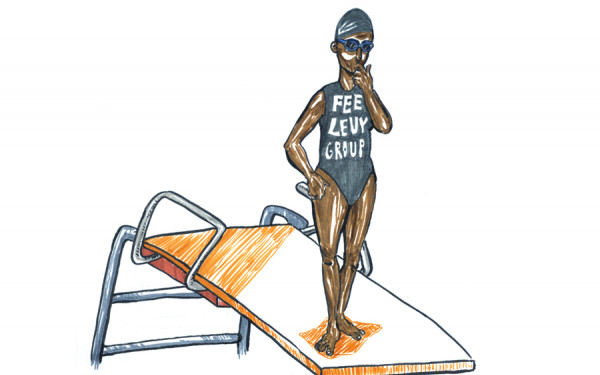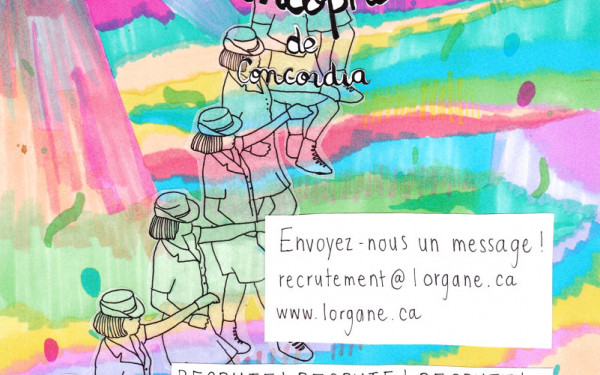A Message of Thanks and Solidarity
A French Perspective on the Paris Attacks
In wake of the attacks on Nov. 13 in Paris, two French students express solidarity and thanks for worldwide support. A French version of this piece will appear in L’Organe’s next issue.
On the evening of Nov. 13, six attacks were orchestrated in Paris by Daesh terrorists. On the streets of Saint-Denis, near the Stade de France, in bars and restaurants in the 10th and 11th arrondissements and in a concert hall, the city was tormented: the target was the civil population.
The death toll rose to 130—eight of the deaths were those of terrorists; 352 were injured, 99 of those left in critical condition. The night of Nov. 13 now bears the scars of the bloodiest terror attack in France since 1945, and one of the deadliest against a Western country since 9/11.
Responses were swift. We were flooded with messages of support including recurring hashtags like #PortesOuvertes (open doors, meaning possible shelter) and #PrayforParis.
Worry, fear, distress, bewilderment and incomprehension was felt by all. Different media outlets offered a mere trickle of information. It was hard to get any details.
One fact dominated everything: Paris was under siege, Paris was stricken. Everywhere in the world, we tried to check on our loved ones, we tried to support each other. Sighs of relief were heard, tears flowed.
What can we say in the face of grief? There are no college classes to teach us what to say, what to do when confronted with such loss. Then incomprehension prevails. How could such a barbaric act have been committed? How can we find justice?
While some try to understand what might have been going on in these people’s heads, others clamor for retaliation, saying that “we ought to kill them all,” and that France must not let anyone walk over her.
How can we fight when we can’t identify our enemy? Isn’t fear our true enemy, and trouble accepting one another? After all, terrorism is defined by the U.N. as “an anxiety-inspiring method of repeated violent action … for idiosyncratic, criminal or political reasons, whereby … the direct targets of violence are not the main targets.”
Faced with a crime such as the one perpetrated on Nov. 13, we must not give the Daesh what they want by dividing ourselves, by giving way to fear and xenophobia. We must not accept Marine Le Pen’s—the Front National candidate for the French presidency—spiel about how “France must re-arm itself,” nor Donald Trump’s claims that France must allow its citizens to carry weapons.
We cannot respond to barbaric acts with more barbaric acts. We cannot lose our humanity in the name of a retaliation that should take place with the help of education, art and love. We must continue to claim our cultural identity, brandishing Voltaire, Weil, De Gaulle, Camus and the Declaration of Human Rights.
We cannot lose our humanity in the name of a retaliation that should take place with the help of education, art and love.
As my friend Owen Falhun said, “the gearing of weapons, that’s the worst thing … we need to share and share again messages of peace.”
These messages of love, support and peace were sent out by the entire world.
Germany offered its military support, Uganda declared their “solidarity with the values attacked last night: liberty, equality, fraternity,” and Brazil adorned its Christ the Redeemer with the colours of France. Hungary declared a national day of mourning, Algeria called the attacks a “crime against humanity” and the Toronto CN Tower donned the tricolour flag. Saudi Arabia denounced a violation of “all ethics, morals and religions”, and the India Gate in New Delhi changed its colours to blue, white, and red.
In Paris, the Eiffel Tower went dark in memory of the victims.
The world lit up to show its support. Thousands of candles were lit and placed on windowsills in houses everywhere on Nov. 14 and 15. Around the world French people gathered in front of embassies, singing “La Marseillaise,” observing moments of silence, and reassuring one another.
If today we are talking about international reactions, it is because we want to thank you.
Geographically speaking, France isn’t a very large country, but it has a history, a culture. As a comment appearing on the New York Times website said so well on the Nov. 14, “France embodies everything religious zealots everywhere hate: enjoyment of life here on earth in a myriad of little ways, a fragrant cup of coffee and buttery croissant in the morning … the smell of warm bread, a bottle of wine shared with friends … the right not to believe in any god … to read any book you want.” France is the country of enlightenment, of Zola and Balzac.
That day, we were not alone. We had support. We could easily go on thanking you for your love. But it is now time for us, the French people, to show our support, as the attacks of the Nov. 13 did not target France alone. The south of Beirut was also attacked by two kamikazes, which resulted in 43 casualties.
The events on Nov. 13 were not only a physical attack on humanity, but also and especially an attack on human rights. Let us hold our heads high, let us testify to our love and faith in humanity.
Fluctuat nec Mergitur.

_900_678_90.jpg)
_600_832_s.png)




_600_375_s_c1.png)